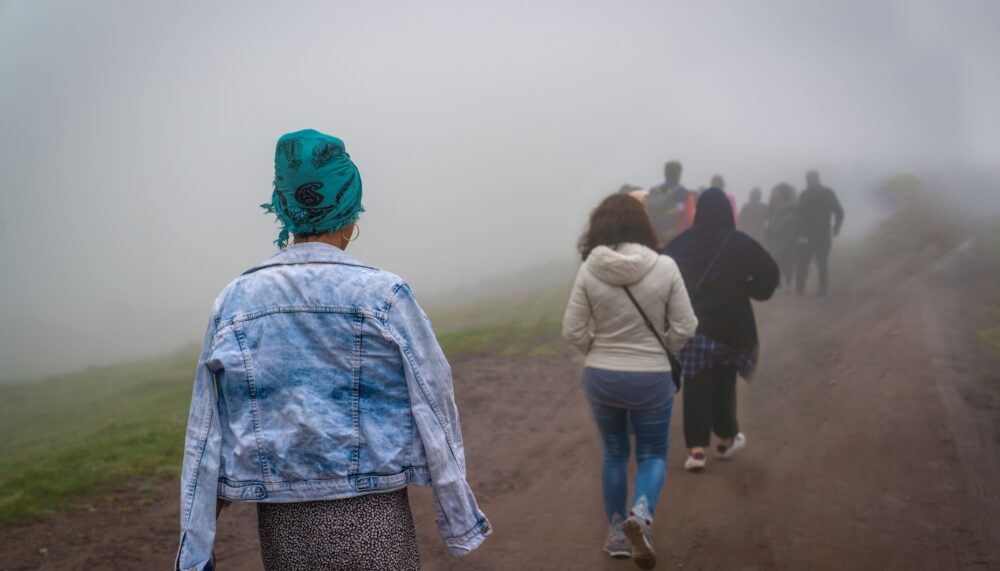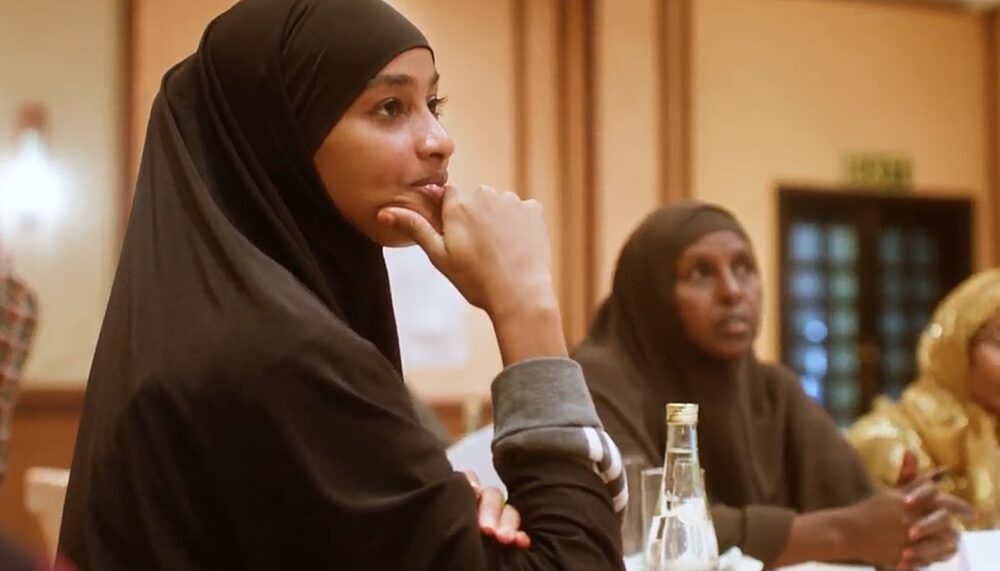FEATURE | 29 Oct 2025
Supporting Women, Peace and Security

The UN Security Council’s landmark resolution turns 25 this year.
Women increase the likelihood of achieving a more sustainable peace – whether contributing in a formal or informal capacity, at or outside of the negotiating table. Research shows that peace agreements are 20 per cent more likely to last two years and 35 per cent more likely to last 15 years, when women are involved.

Ensuring women have an opportunity to contribute and be meaningfully included in peace processes is at the heart of United Nations Security Council Resolution 1325, Women, Peace and Security (WPS), which celebrates its 25th anniversary this year. While this framework has undoubtedly increased visibility of women’s participation globally, the anniversary comes at a time when we’re seeing the re-emergence of “strongman politics” dominating governance, and progress on gender and inclusion is under attack or backsliding in too many places.
Today’s conflicts are increasingly complex and multilayered, often exacerbated by intersecting global challenges such as climate change. Gender-based violence is on the rise, and more women are being killed in armed conflict. At the same time we acknowledge this, we must also confront the fact that for far too long, women have only been seen as victims of conflict, rather than active participants in resolving it. That is why, to resolve increasingly complex conflicts, the participation of women and other marginalised actors are not just beneficial, but essential.

At the Berghof Foundation, we work with women across all levels of society and conflict to support gender-responsive peace processes. For example, our work with women insider mediators across Latin America, the Middle East and North Africa and Southeast Asia highlights women’s ability to foster dialogue and trust by leveraging their unique access and leadership skills within communities. This, in turn, strengthens social cohesion and helps mitigate violence to advance conflict transformation.
In Somalia, for instance, women peacebuilders we work with through our Insider Peacebuilders Network (IPN) are helping to mitigate climate-related conflicts through increasing community education and resilience. In post-conflict contexts, we work with women associated with resistance and liberation movements who are often excluded from post-war transitions and peace processes. Helping them in their political, social and economic reintegration into civilian life helps sustain lasting peace.
We embrace this anniversary as a time of reflection, to analyse our approaches, and dive deeper into the research.
Going forward, we will continue to honour our pledge to the WPS Agenda and – most importantly – do the work by supporting our partners on the ground who are achieving results in the face of gendered resistance -- mediating disputes within their communities, negotiating prisoner exchanges and local ceasefires, using shared challenges such as climate change to bring people together and creating space for peace often where none exists.

To be successful, we must continue to ensure women’s meaningful participation – meaning we not only make sure women are represented at all levels and in all phases of a peace process, but that they are actually heard. We must also engage men as allies for gender sensitivity and responsiveness and work towards holistic and consistent approaches by breaking down institutional and policy siloes. Additionally, we must also strengthen localisation and stewardship of women-led peace processes, ensure access to capacity-building opportunities, and make visible the experiences and triumphs of women peacebuilders.
WPS and its agenda remain a crucial tool for conflict transformation. We will continue to work with the WPS policy community to ensure that all country planning is inclusive of the specific needs and contributions of underrepresented or marginalised groups. We remain committed to applying the agenda within the work of preventing and resolving conflicts and sustaining peace in post-conflict societies.
We proudly endorse and are signatories to the following statements reaffirming our commitment to acting on the WPS Agenda:
- A common pledge for women's participation | UN
- Reclaiming the WPS Agenda at 25 | WO=MEN, Dutch Gender Platform
- Reaffirming and safeguarding the EU’s approach to Women, Peace and Security | EPLO
Our Executive Director Chris Coulter spoke at the United Nation's Secretary-General's Common Pledge on Women's Participation in Peace Processes:
Media contact
You can reach the press team at:
+49 (0) 177 7052758
email hidden; JavaScript is required

